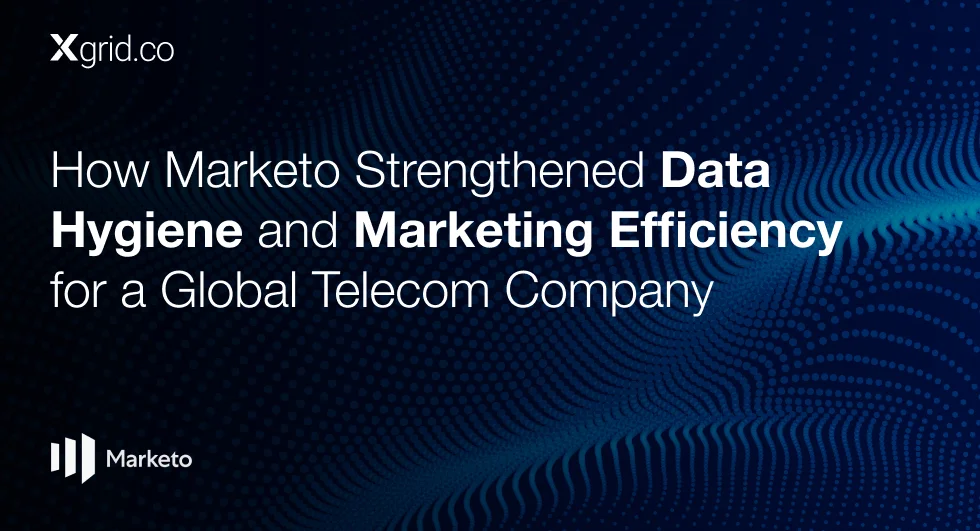The Importance of Data Hygiene in Large-Scale Marketo Implementations
“It’s super important to maintain data hygiene… you need a health check report to catch things before they become big issues.”
John emphasizes that the first step in maintaining data hygiene is conducting regular health checks to ensure that the data being fed into Marketo is clean and accurate.
These checks should be done before, during, and after the implementation process to avoid issues such as duplicate records, incomplete information, or misaligned data points.
The Consequences of Poor Data Hygiene
John’s experience shows that poor data hygiene can result in significant problems, particularly when syncing Marketo with Salesforce or other CRM systems. Maintaining data hygiene is essential for keeping Marketo operations smooth and efficient. Clean data ensures that lead information flows seamlessly between systems, reducing the likelihood of sync errors, duplicate records, and misaligned data fields.
By prioritizing data hygiene, businesses can streamline their Marketo workflows, support accurate campaign targeting, and maximize the value of their marketing automation.
Sync errors can slow down the entire operation, causing leads to get stuck in the pipeline or resulting in incorrect data being sent to the sales team.
“When your data isn’t clean, you’re going to run into problems with syncing, which then causes delays and impacts your sales team’s ability to follow up on leads.”
To prevent these issues, John recommends implementing data validation rules and automation workflows that catch errors before they are pushed through the system.
Regular data enrichment processes also ensure that any missing or outdated information is updated in real-time, keeping the data clean and actionable.
Key Data Hygiene Practices
- Regular Audits: Conduct frequent data audits to check for duplicates, incomplete records, and errors.
- Health Check Reports: Use health check reports to monitor the quality of your data and catch potential issues early.
- Automation for Data Cleansing: Implement automation rules that flag problematic records and ensure they are cleaned before syncing with other systems.
Conclusion
Data hygiene is the backbone of any successful Marketo implementation. With the support of expert Marketo implementation services, businesses can conduct regular audits, use health check reports, and leverage automation for data cleansing, ensuring that their data remains accurate, reliable, and ready for action.
Downloads
Article (PDF-276 KB)MOST POPULAR INSIGHTS
- How Marketo Strengthened Data Hygiene and Marketing Efficiency for a Global Telecom Company
- How Marketo-Salesforce Integration Improved Lead Management for a Biotechnology Firm
- How a Tech Company Used Marketo to Refine ABM Strategies for Sales Engagement
- How Marketo Campaigns Were Streamlined with Templates and Tokens
- How Marketo Solidified Marketing Insights with Custom Attribution Models
Related Articles
Related Articles

Established in 2012, Xgrid has a history of delivering a wide range of intelligent and secure cloud infrastructure, user interface and user experience solutions. Our strength lies in our team and its ability to deliver end-to-end solutions using cutting edge technologies.
OFFICE ADDRESS
US Address:
Plug and Play Tech Center, 440 N Wolfe Rd, Sunnyvale, CA 94085
Dubai Address:
Dubai Silicon Oasis, DDP, Building A1, Dubai, United Arab Emirates
Pakistan Address:
Xgrid Solutions (Private) Limited, Bldg 96, GCC-11, Civic Center, Gulberg Greens, Islamabad
Xgrid Solutions (Pvt) Ltd, Daftarkhwan (One), Building #254/1, Sector G, Phase 5, DHA, Lahore




